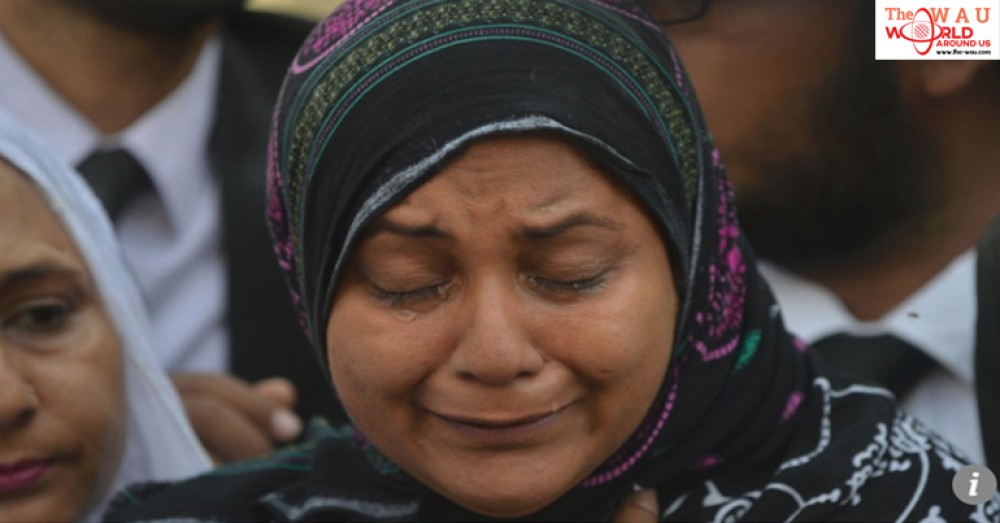Asma Nawab spent two decades in jail, wrongfully accused of murdering her family. Finally acquitted, she is seeking a new life, free from whispers and memories, as her plight draws fresh questions over Pakistan's woeful justice system.
Nawab was just 16 years old when someone slit the throats of her parents and only brother during an attempted robbery at their home in Pakistan's chaotic port city of Karachi in 1998.
With the killings dominating headlines, prosecutors pushed for swift justice in a 12-day trial that ended with a death sentence handed to Nawab and her then-fiance.
The next 20 years were "very painful", Nawab, now 36, says tearfully.
At first the other inmates were sceptical at her protests of innocence, but eventually she formed a new "family" of women -- some convicted of kidnappings, others of murders.
They supported one another when progress on their cases was poor, or family neglected them.
"We would cry on Eid and other festivals... It was very painful. I would feel it intensely" when relatives failed to visit, she said through sobs. "Only once my uncle came to see me."
Though her trial was speedy, her appeal moved at a glacial speed through Pakistan's creaky justice system
It was not until 2015 that her lawyers petitioned the Supreme Court, which -- after a three-year hearing -- ordered Nawab released due to lack of evidence last month.
"The verdict of this case was given in 12 days but it took 19 and a half years to dispose of the appeals," her lawyer Javed Chatari told AFP.
Nawab said the acquittal left her stunned. "I really couldn't believe it," she told AFP.
The verdict left her "perplexed", she said, and she struggled to understand what would come next. "How would I face the world after living so long in jail?"
- Judicial woes -
Stories like Nawab's are common in Pakistan, where the judiciary lacks the capacity to cope with the country's surging population and an expanding case load, resulting in a mammoth backlog.
In 2017 alone, there were more than than 38,000 cases pending in Pakistan's Supreme Court in addition to hundreds of thousands awaiting trial across the judiciary, according to a Human Rights Commission Pakistan report released in April.
Rampant corruption in Pakistan's police force also means the wealthy are able to bypass the law, while deep-seated patriarchy means women in particular face an uneven playing field in the justice system.
"Unequal power structures allow for people with advantage -- money or power -- to rise above the law. For the poor, the system is sluggish and sometimes is so weak that it is safe to label it as almost non-existent," said lawyer Benazir Jaoti, who specialises in women's legal and political empowerment in Pakistan.
"Within the system, women are one of the groups of people that are significantly disadvantaged, it being a patriarchal society and a patriarchal system."
Even when the system finally comes through, as it did with Nawab's acquittal, that is usually as far as it goes, leaving those whose lives have been dismantled to repair the damage with little or no support.
...[ Continue to next page ]
Share This Post














